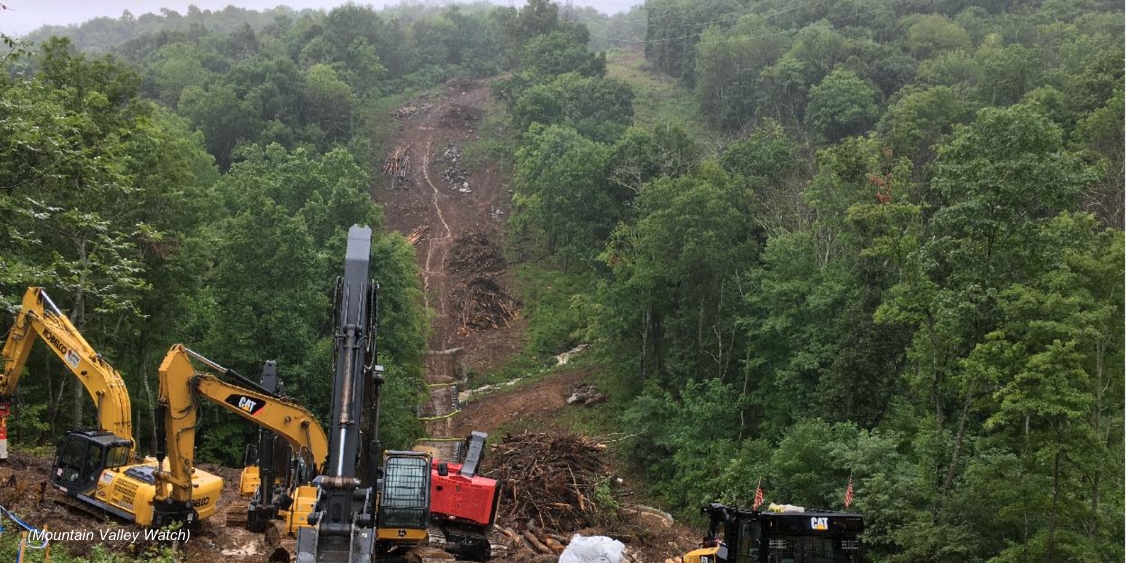The past month has been nothing short of mayhem in the rush to remove all obstacles standing in the way of the Mountain Valley Pipeline and wreak havoc on West Virginia’s precious water, air, mountains and all who lie within.
As has been reported many times over the years in The Highlands Voice, the construction of the 303-mile pipeline through Virginia and West Virginia has already racked up hundreds of water quality violations and polluted miles of streams. To pour salt in the wound: there are still 429 water crossings left to go.
There are many reasons why this pipeline is a bad idea, not only for its impacts felt close to home but also for the broader impact to be felt by the global community as climate change continues to worsen as a continued result of fossil fuel extraction.
An analysis from Oil Change International estimates that the annual greenhouse gas emissions caused by the Mountain Valley Pipeline would be almost 90 million metric tons. This is equivalent to the emissions from 26 average United States coal plants or over 19 million passenger vehicles. This estimate does not include construction emissions. The total vegetation clearance needed for construction is approximately 4,856 acres, including crossing the Jefferson National Forest and the Appalachian Trail.
On May 2, Senator Joe Manchin moved to hardball the project by introducing the Building American Energy Security Act of 2023, requiring federal agencies to issue the Mountain Valley Pipeline its outstanding permits within thirty days of its passage and change how energy projects are handled by federal agencies.
In response to the bill that would fast-track approval for the Mountain Valley Pipeline and exempt it from federal permitting guidelines, the West Virginia Highlands Conservancy joined 33 organizations, led by West Virginia Rivers Coalition, in a letter urging President Biden and Senate Majority Leader Chuck Schumer to protect West Virginians’ right to fair and equal treatment under the law.
According to West Virginia Rivers Coalition, at the time of this writing more than 1,000 individuals have added their voices to defend West Virginia communities and the environment.
The letter asserts that communities in West Virginia are already paying the price of decades of environmental degradation and increased health risks as a fossil fuel energy sacrifice zone.
Despite these valid concerns, on May 28, West Virginian’s received word that the Biden Administration had made plans to steamroll over any hurdles to completing the Mountain Valley Pipeline by sliding it into a deal with House Republicans to raise the nation’s debt ceiling.
The attempt to give the Mountain Valley Pipeline a free pass would effectively bypass the review process required for every other energy project and weaken national environmental reviews.
The debt ceiling legislation would direct key agencies to issue all necessary permits and mandate that “no court shall have jurisdiction to review any action taken” that grants an approval necessary for the construction and initial operation of the project. The debt ceiling bill text states that, “Congress hereby finds and declares the timely completion of construction and operation of the Mountain Valley Pipeline is required in the national interest.”
Senator Joe Manchin said in a statement on May 29 that he was very proud of himself for fighting to get MVP across the finish line.
At the time of this writing, it is unknown whether the debt ceiling legislation will pass, and we will continue to provide updates in The Highlands Voice and on our social media channels.

